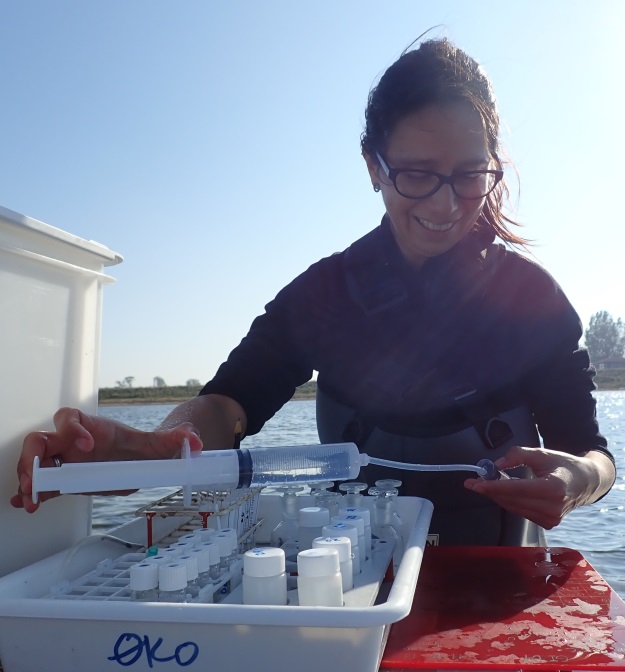Brief Project Description
Vegetated marine habitats, such as seagrasses, are considered blue carbon ecosystems since they have the potential to mitigate climate change via capture and storage of CO2 over longer timescales >100 years. However, the CO2 captured by seagrass during photosynthesis turned into carbon biomass and buried in the sediment, might not be stored in the sediment over longer time scales. We believe that the rhizome system of seagrasses oxidizes the sediment and release dissolved organic compounds thereby stimulating microorganisms to degrade carbon biomass and shifting the overall carbon budget.
Our group seek candidates to test the research hypothesis that blue carbon buried in the sediment is degraded by microorganisms into CO2, CH4, N2O that the production of these greenhouse gases is an important and overseen factor in balancing the carbon budget for seagrass ecosystems. There is a growing research focus on CH4 and N2O which have high radiative warming potential, however the plant-microbial mechanisms of production and/or oxidation of these gases are poorly understood. In this project, the candidate will work with a combination of laboratory and field work to investigate porewater chemistry, composition of dissolved organic compounds, and CO2, CH4, N2O measurements using sensors and analytical methods. This project builds upon preliminary findings on CH4 and N2O release of seagrasses in Danish coastal areas. Furthermore, this project will contribute to advance research on blue carbon and enable decision-making, providing reliable carbon calculations at national levels by accounting for degradation of stored blue carbon and the associated release of CO2, CH4, and N2O.
Our group seek candidates to test the research hypothesis that blue carbon buried in the sediment is degraded by microorganisms into CO2, CH4, N2O that the production of these greenhouse gases is an important and overseen factor in balancing the carbon budget for seagrass ecosystems. There is a growing research focus on CH4 and N2O which have high radiative warming potential, however the plant-microbial mechanisms of production and/or oxidation of these gases are poorly understood. In this project, the candidate will work with a combination of laboratory and field work to investigate porewater chemistry, composition of dissolved organic compounds, and CO2, CH4, N2O measurements using sensors and analytical methods. This project builds upon preliminary findings on CH4 and N2O release of seagrasses in Danish coastal areas. Furthermore, this project will contribute to advance research on blue carbon and enable decision-making, providing reliable carbon calculations at national levels by accounting for degradation of stored blue carbon and the associated release of CO2, CH4, and N2O.
Submit an application
It is mandatory to use the SDU-MSCA program Application Form - To be sent to ert@sdu.dk with supporting documents not later then 15 May (12:00 CET) 2023
